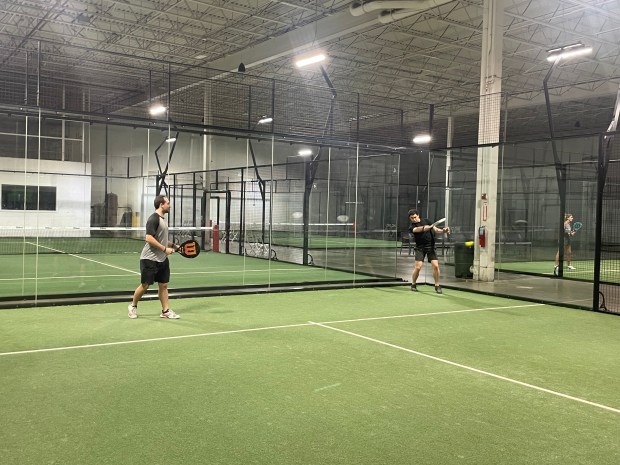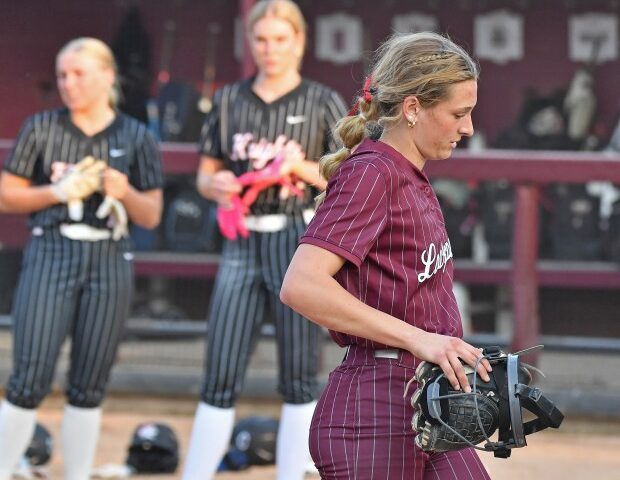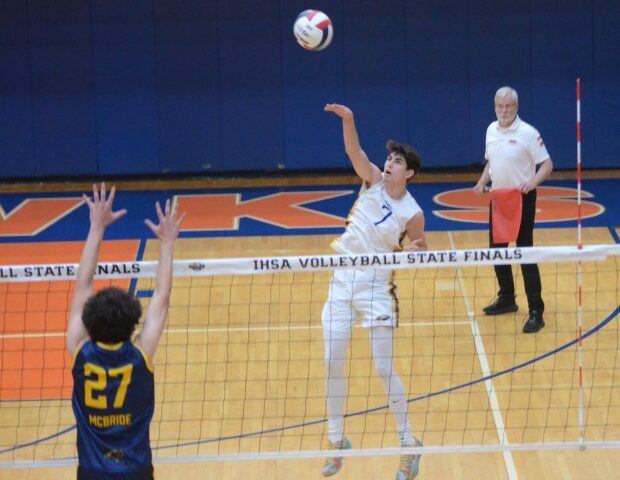Abigail McCulloch is banking on the growing sport of padel taking hold on the North Shore.
“Padel is played in 70-plus countries,” said McCulloch, owner of Padel Blue LLC. “While we’ve been distracted by pickleball, every other country is growing their padel.”
McCulloch, who grew up in Wilmette, is so sure the region will embrace it that she plans to open the North Shore’s first padel club in Glenview in January.
“The North Shore values new and novel experiences that bring the community closer together,” she said. “That’s exactly what this sport is. It has an international flair. It casts some intrigue over a new experience. It combines the social aspects of sports that the North Shore loves, and it’s similar to paddle tennis and tennis.”
McCulloch regards padel and pickleball, which has become popular in the U.S. in recent years, as significantly distinct from each other and not in competition for players.
“They’re complements,” she said. “Just because you play squash does not mean you don’t also play tennis. Pickleball is great support because it’s allowed so many people to get comfortable with paddle sports. Padel is more international and has more of a competitive foundation.”
People should play padel because it emphasizes community, the social element of sports, and “strategy over strength,” McCulloch said.
“It’s a very strategic game,” she said. “You use your mind while you play.”
Denis Miguel, manager and coach at Padel Clube, which opened in Mundelein about two years ago, said padel is the fastest growing sport in the world.
“Only Americans don’t know about it yet,” Miguel said. “It’s totally different (from pickleball), including the floor, the glass, the court, the racquet, the ball and the strategy.”
Padel was invented in Acapulco, Mexico, in 1969, McCulloch said. It quickly became popular in Spain and Argentina, Miguel said.
“And now it’s popular all around the world,” he said.
Kevin Vigallon of Chicago, a regular at Padel Clube, said he’s been playing two to three times a week for about two years.
“I found out about it on a trip to Miami, where they had courts,” Vigallon said. “The first time you play, it’s easy to get hooked.”
Vigallon called padel a “combination of tennis and soccer.” Although padel players don’t use their feet to move the ball, the sport is similar to soccer because it requires endurance and strategy, he said.
“There are no timeouts,” Vigallon said. “You have to think on the fly and work with your partner. It’s hard to rely on yourself or a teammate. It’s definitely a team sport.”
On a padel court, the wall is “in play,” unless the ball hits the wall directly without touching the court, he said.
“It’s like tennis in a box,” Vigallon said. “And you use the same scoring as tennis.”
The back-and-forth play called a volley in tennis is called a “rally” in padel, he said.
“You can hit the ball in the air like tennis, but not like ping pong,” Vigallon said. “So it’s a mix of rules and strategy.”
A padel court is two-thirds the size of a tennis court, he said.
“So there’s not as much running, when you miss a ball,” Vigallon said. “The ball is a little smaller and a little lighter but close to a tennis ball.”
McCulloch said she chose 2300 Ridge Drive in Glenview to open her flagship padel facility for three big reasons.
“One, its location is central to the North Shore,” she said. “Two is the familiarity. Glenview is a place I know and love. I grew up playing tennis down the street. Pickleball is picking up. If you grew up in the area, you’re familiar with it. And three is the space itself. It’s distinctly different than any space I toured.”
On Nov. 7, the Glenview Village Board granted a Class D liquor license to Padel Blue. Class D allows the retail sale of alcohol by clubs and daily-fee golf courses for consumption by patrons.





